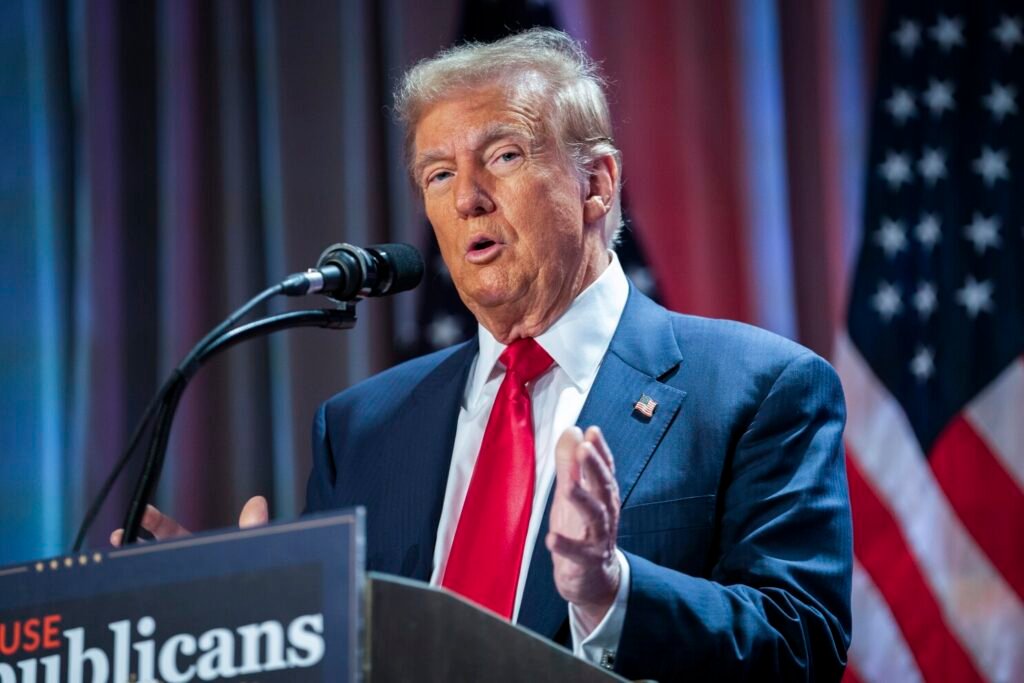Trump’s Return and Its Impact on the Dollar and the Forex Market


As Donald Trump’s inauguration as President approaches, global financial markets, including the foreign exchange (forex) market, are abuzz with speculation about how his policies will shape economic trajectories. Trump’s return to power carries significant implications for the U.S. dollar, which has been under pressure in recent weeks, as well as for global currency trading. Here’s a detailed look at the factors at play, their consequences, and the potential forex market outlook.
Why the Dollar is Under Pressure
The U.S. dollar, often regarded as the world’s reserve currency, tends to thrive on stability and investor confidence. However, Trump’s impending presidency has created a climate of uncertainty due to his policy proposals. Several factors contribute to the dollar’s current weakness:
1. Concerns Over Tariffs and Trade Policies
Trump’s America First agenda emphasizes reshoring jobs and implementing tariffs to protect domestic industries. While these policies may benefit certain sectors in the short term, they risk escalating trade wars and disrupting global supply chains. Such measures could lead to higher import costs and inflation, eroding the dollar’s purchasing power.
2. Fiscal Stimulus and Inflation Fears
Trump’s plans for tax cuts and massive infrastructure spending have raised fears of inflationary pressures. Higher government spending could increase the fiscal deficit, putting downward pressure on the dollar. While inflation expectations may lead to interest rate hikes by the Federal Reserve, the market is uncertain whether monetary policy adjustments will be sufficient to counteract inflation.
3. Political Uncertainty
Investors are wary of potential geopolitical tensions under Trump’s leadership. Controversial foreign policies or abrupt decisions could lead to global market volatility, reducing demand for the dollar as a safe-haven currency.
4. Weakening Economic Indicators
Recent U.S. economic data has been mixed. While retail sales rose by 0.4%, unemployment claims also increased, signaling potential weaknesses in the labor market. This divergence has tempered investor optimism and contributed to dollar volatility.
How Trump’s Return Could Affect the Forex Market
Trump’s policy decisions will have ripple effects across the forex market, influencing currency valuations, trading strategies, and investor behavior. Below are the key areas of impact:
1. Increased Volatility
Currency markets thrive on predictability, but Trump’s unconventional approach to governance often creates unexpected scenarios. Traders should brace for heightened volatility as the market reacts to policy announcements, speeches, and geopolitical developments.
2. Impact on Emerging Market Currencies
Emerging market currencies are particularly sensitive to U.S. policies. Protectionist trade measures could weaken currencies in export-driven economies, such as Mexico and China, which are heavily reliant on trade with the U.S. Conversely, countries with lower exposure to U.S. markets may see their currencies strengthen.
3. Strengthening of Safe-Haven Currencies
Uncertainty surrounding Trump’s policies could bolster demand for traditional safe-haven currencies like the Japanese yen (JPY) and Swiss franc (CHF). These currencies tend to perform well during periods of market turmoil or geopolitical tension.
4. Impact on Commodity-Linked Currencies
Trump’s infrastructure plans and potential trade restrictions on energy imports could influence commodity prices. Countries like Canada, Australia, and Brazil, whose economies are tied to commodities, may see significant fluctuations in their currencies.
5. Influence on Central Bank Policies
The Federal Reserve and other central banks will closely monitor Trump’s fiscal policies and their economic implications. Diverging monetary policies among major economies could lead to shifting currency dynamics, such as a stronger euro or yen against the dollar.
Long-Term Forex Market Implications
While the immediate impact of Trump’s return will likely involve market turbulence, the longer-term implications depend on how his policies play out. Below are some potential scenarios:
1. Dollar Recovery Through Growth
If Trump’s policies successfully stimulate economic growth without causing excessive inflation, the dollar could recover and strengthen. Robust job creation, higher GDP growth, and improved consumer confidence would attract investors to U.S. assets.
2. Sustained Dollar Weakness
On the flip side, if trade wars escalate, inflation spirals out of control, or fiscal deficits balloon, the dollar could experience prolonged weakness. This scenario would benefit exporters and U.S. companies with overseas revenues but pose challenges for importers and consumers.
3. Realignment of Global Trade and Currencies
Protectionist policies could prompt other nations to strengthen trade ties outside the U.S., leading to shifts in currency alliances. For instance, China’s yuan (CNY) may gain prominence as it deepens trade relationships with emerging markets and the European Union.
4. Market Adaptation to Uncertainty
Forex traders will likely adapt by diversifying portfolios, focusing on technical analysis, and leveraging hedging strategies to navigate uncertainty. Increased use of algorithmic trading and machine learning may also emerge to capitalize on Trump-driven market patterns.
Conclusion
Donald Trump’s return to the presidency brings a mix of opportunities and challenges for the forex market. The dollar’s current weakness reflects investor caution, driven by concerns over trade policies, inflation, and political uncertainty. However, the evolving landscape also presents traders with unique opportunities to adapt and strategize.
Whether the dollar recovers or continues to weaken will depend on how Trump’s policies unfold and their broader economic impact. Forex traders should stay informed, monitor market trends closely, and be prepared for heightened volatility in this new era of U.S. leadership. As always, risk management and informed decision-making will be key to navigating these dynamic times in the forex market.


